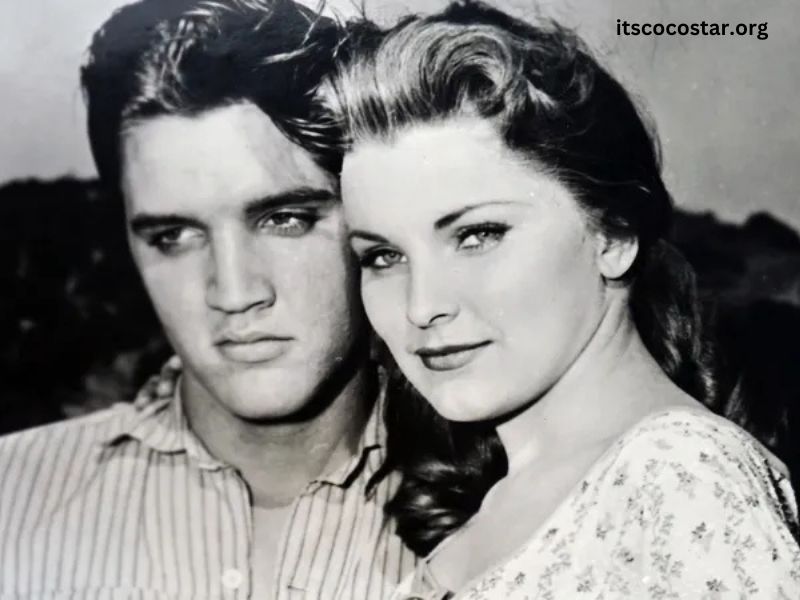Elvis Presley, often hailed as the “King of Rock and Roll,” has left an indelible mark on the music world. Among his extensive discography, the song “I Want You, I Need You, I Love You” stands out as a poignant expression of longing and devotion. Released in 1956, this ballad encapsulates themes of love and desire, echoing the sentiments that many listeners can relate to. This article explores the song’s background, lyrical content, musical composition, and its enduring legacy in popular culture.
Background and Context
“I Want You, I Need You, I Love You” was written by the prolific songwriting team of Maurice (Moe) J. L. “Moe” Dossin and Ira Kosloff. The song was released as a single on May 6, 1956, and it quickly became one of Elvis’s most cherished ballads. At a time when rock and roll was still in its infancy, Elvis was pivotal in bringing the genre into the mainstream. His blend of rhythm and blues with pop sensibilities captivated audiences across America and beyond.
The song was initially recorded for the soundtrack of the film Loving You, which starred Elvis himself. The film, like many of Elvis’s early works, revolved around themes of young love and the struggles that accompany it. This contextual backdrop added depth to the song, making it a natural fit for the narrative of the film.
Lyrical Analysis
The lyrics of “I Want You, I Need You, I Love You” are a heartfelt declaration of love and yearning. The repetition of the phrases “I want you,” “I need you,” and “I love you” creates an emotional crescendo that resonates with the listener. The simplicity of the lyrics is one of its strengths; it captures the raw and uncomplicated nature of young love.
The song opens with a powerful assertion of desire, immediately engaging the listener. The repetition throughout the verses emphasizes the urgency and depth of emotion. Lines like “With all my heart, I love you” illustrate the sincerity of the singer’s feelings, reinforcing the song’s romantic themes.
The lyrics also evoke a sense of vulnerability, as the speaker lays bare their emotional state. This vulnerability is a hallmark of many of Elvis’s performances, where he often infused his songs with genuine emotion. This connection between the artist and the audience is part of what has allowed “I Want You, I Need You, I Love You” to remain timeless.
Musical Composition
Musically, “I Want You, I Need You, I Love You” is a blend of pop and rhythm and blues. The song features a slow tempo that allows Elvis’s voice to shine, showcasing his unique vocal style. The orchestration includes lush strings and a gentle piano accompaniment, which creates a romantic atmosphere that complements the lyrics perfectly.
Elvis’s delivery of the song is characterized by his powerful yet tender vocal style. He employs a mix of crooning and passionate intensity that captivates the listener. His ability to convey emotion through his voice is one of the reasons he became an icon in the music industry.
The song’s structure is relatively straightforward, following a classic verse-chorus format. This simplicity allows the listener to focus on the emotional weight of the lyrics rather than complex musical arrangements. The blend of the heartfelt lyrics and Elvis’s evocative performance creates a compelling listening experience.
Impact and Legacy
Upon its release, “I Want You, I Need You, I Love You” quickly climbed the charts, reaching number one on the Billboard charts. The song’s success solidified Elvis’s status as a leading figure in the music scene and showcased his ability to deliver powerful ballads alongside upbeat rock and roll tracks.
The song’s enduring legacy is evident in its influence on subsequent generations of artists. Many musicians have covered the song, each bringing their interpretation to the timeless lyrics. The emotional core of the song continues to resonate, making it a popular choice for weddings and romantic occasions.
In addition to its musical impact, “I Want You, I Need You, I Love You” has also been featured in various films, television shows, and commercials, further cementing its place in popular culture. The song is often used to evoke feelings of nostalgia and romantic longing, serving as a reminder of the power of love.
The Cultural Significance of Elvis
Elvis Presley’s impact on American culture extends far beyond his music. He was a cultural icon whose persona helped shape the social landscape of the 1950s and 60s. Elvis challenged traditional norms around race, sexuality, and style, breaking barriers in a segregated society. His integration of different musical styles helped pave the way for future genres, including rock, pop, and country.
Elvis’s appeal was not just in his music; it was also in his image. He was a sex symbol and a rebel, capturing the spirit of youth and freedom that defined the era. Songs like “I Want You, I Need You, I Love You” showcased a softer side of his persona, appealing to the romantic aspirations of his fans.
Conclusion
“I Want You, I Need You, I Love You” is more than just a song; it is a reflection of the universal experiences of love and longing. Its lyrical simplicity, combined with Elvis’s passionate delivery, creates a timeless piece that continues to resonate with audiences today. The song’s success and its lasting impact on popular culture highlight Elvis’s role not only as a musician but as a cultural phenomenon.
As we reflect on the significance of this song, it serves as a reminder of the power of love and the emotions that connect us all. Through his music, Elvis Presley created a legacy that transcends generations, and “I Want You, I Need You, I Love You” remains a cherished part of that legacy, capturing the essence of what it means to love and be loved.







